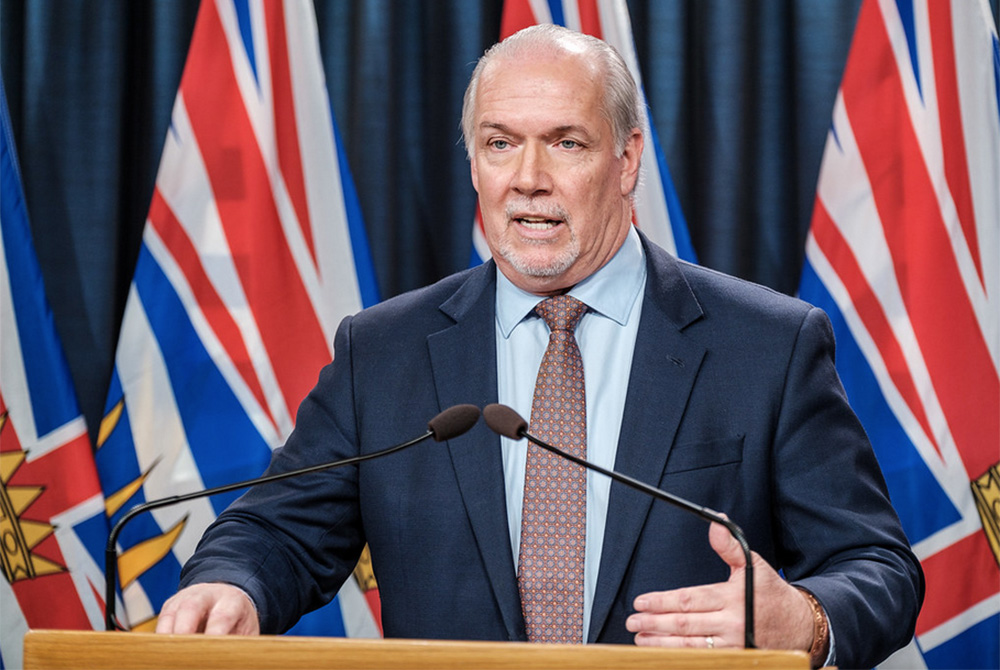The Union of British Columbia Municipalities has asked the provincial government to allow all residential property owners to defer their taxes as a way to help individuals and local governments weather the impacts of the COVID-19 pandemic.
“Given the risk of property tax delinquencies, local governments are seeking an expansion of the existing Property Tax Deferment Program to cover all residential tax payers at a minimum,” UBCM President Maja Tait wrote in a May 8 letter to Municipal Affairs and Housing Minister Selina Robinson.
The existing program allows people over the age of 55, people with disabilities, those who have lost a spouse, and families with children to defer their property taxes.
The province funds the program, giving municipalities what they are owed for the deferred taxes each year and eventually collecting the debt plus a small amount of annual, non-compounded interest from the owners when the properties are sold or transferred.
“While the program's eligibility covers a significant number of residents, there remains a sizeable number of ineligible residents that require support,” wrote Tait, the mayor of Sooke. “An expanded program would mitigate the risk of delinquencies, and provide a greater degree of certainty for budgeting and long-term financial planning.”
There are 1.9 million residences in B.C. According to the Finance Ministry, there were 71,000 property tax deferment accounts active in 2019 and owners deferred nearly $1.2 billion that year. The ministry estimates 75 per cent of owners are eligible for the existing program.
Premier John Horgan said Wednesday he hasn’t yet seen the UBCM letter, but he and Finance Minister Carole James have been hearing many ideas as they look for ways to support people during a very difficult time.
“We’re looking forward to proposals from UBCM and others about how we can better support landowners, homeowners, communities,” Horgan said. “The sky is really the limit on the requests, but it’s not necessarily the limit on our ability to meet those demands.”
B.C.’s approach has been to work with the federal government and fill gaps where needed, he said. “As we go through the restart, if there are still gaps we’re going to try our best to fill them.”
There are many ideas competing for funding, Horgan added. “I know Carole James has got proposals stacked on her desk and she and her staff are going through them diligently trying to find those that will fit and those that will give the best bang for our tax dollars to support people and businesses.”
Local governments do need support, but expanding property tax deferrals isn’t the best way to do it, said Iglika Ivanova, a senior economist with the B.C. office of the Canadian Centre for Policy Alternatives.
“I don’t know that all residential property owners need it,” she said, adding that many homeowners are already relatively wealthy and that government help should be targeted to people who need it. Nor has enough been done to help tenants, she said.
A similar property tax deferral program temporarily in place after the 2008 financial crisis required participants to demonstrate financial hardship, an approach Ivanova said would make more sense.
Tait’s letter thanked the provincial government for measures it previously announced and said the general feeling among local governments was they could weather several months but are worried about next year and the years after that.
“Local governments are concerned that the continued loss of non-taxation revenue, coupled with the uncertainty of tax delinquencies, will hinder the ability of local governments to advance capital projects, maintain existing essential services, and pay back reserves without significant property tax increases in the years ahead.”
Aside from expanding the property tax deferral program, the UBCM requested more financial support for transit and to be closely involved in spending economic recovery stimulus money. ![]()
Read more: BC Politics, Housing
















Tyee Commenting Guidelines
Comments that violate guidelines risk being deleted, and violations may result in a temporary or permanent user ban. Maintain the spirit of good conversation to stay in the discussion.
*Please note The Tyee is not a forum for spreading misinformation about COVID-19, denying its existence or minimizing its risk to public health.
Do:
Do not: